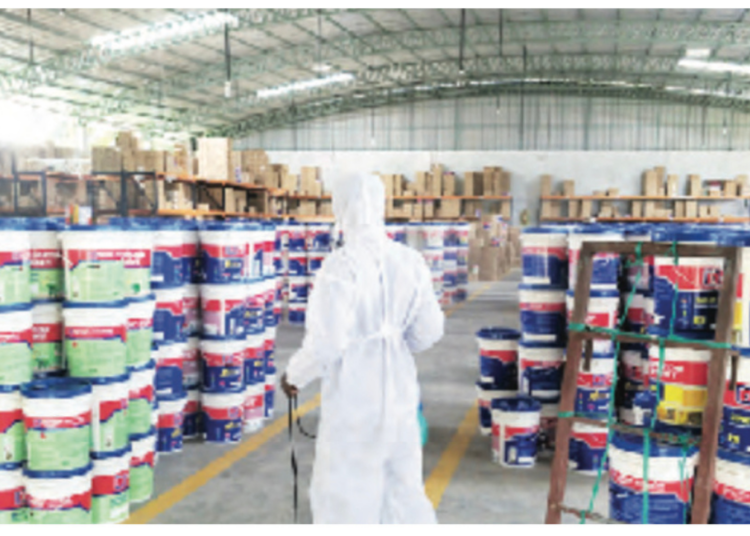For those interested in the paint business, operating as a paint distributor in Nigeria requires fulfilling several key steps and complying with various regulations.
However, there are some requirements and procedures involved in setting up and operating a paint distribution business in Nigeria.
In this line of business, it is gathered that the two most important links of supply chain management are wholesalers and distributors, as they ensure the timely availability of merchandise to the end user.
In a chat with the owner of a paint sales outlet, Mr. Charles Aikhoje, stated that, no business should exist without a business registration.
According to him, “the first step is to register the paint distribution business as a legal entity with the Corporate Affairs Commission (CAC). This involves choosing a business name, completing the necessary registration forms, and obtaining a certificate of incorporation.”
He advised that the location and facilities will secure a suitable location for the paint distribution business, such as a warehouse or storage facility.
While ensuring that the location complies with zoning regulations and has the necessary infrastructure for storing, movement and handling paint products.
It is necessary to obtain the required business licenses and permits to operate as a paint distributor which includes a trade license, tax identification number (TIN), and any other relevant government document.
He, however, stated that, there should be an agreement in place between the paint manufacturers/supplier and the distributor.
Aikoje opined that, establishing partnerships or agreements with reputable paint manufacturers or suppliers will help with procuring the paint products for distribution.
One must consider factors such as product quality, pricing, and delivery terms when selecting suppliers with a variety of paint products that will meet the demands of customers.
This may include different types of paints, coatings, and related accessories while keeping proper recording and stock control systems in place.
Similarly, developing a marketing strategy to promote the paint distribution business and attract customers. This may involve advertising, creating a digital presence, participating in trade shows, and developing relationships with contractors, builders, and other potential clients.
Mr. Aikhoje asserted that, implementing proper storage and handling practices for paint products are needed to maintain their quality and safety.
This may include guidelines for temperature control, ventilation, and hazardous materials handling.
Recruiting and training staff members to ensure they have the knowledge and skills to handle paint products safely and provide excellent customer service.
It is noted that establishing protocols for addressing customer inquiries, complaints, and product support. Provide after-sales services and support to build trust and loyalty with customers.
Paint distributors need to stay informed about industry trends, market demand, and technological advancements in paint products.
It is gathered that by fulfilling some basic practices, paint distributors can establish and operate a successful business in Nigeria.
Additionally, seeking advice from legal and industry professionals can help navigate the regulatory landscape and compliance requirements for paint distribution in Nigeria.





